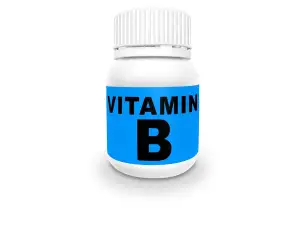Protein for Muscle Building: Unveiling the Optimal Amount for Maximum Gains

- Importance of Protein for Muscle Building
- Recommended Daily Protein Intake for Muscle Growth
- Factors Affecting Protein Requirements for Muscle Building
- Protein Sources for Muscle Development
- Timing and Distribution of Protein Consumption for Optimal Muscle Growth
- Potential Risks of Excessive Protein Intake for Muscle Building
- Consulting a Healthcare Professional for Personalized Protein Recommendations
Importance of Protein for Muscle Building
Protein plays a crucial role in muscle building and development. It is the building block of muscles and is essential for repair, growth, and maintenance. When we engage in strength training or any form of exercise that puts stress on our muscles, protein helps to repair the damaged muscle fibers and promote their growth. Without adequate protein intake, it becomes difficult to achieve optimal muscle gains. Additionally, protein also aids in enhancing muscle strength and improving overall performance during workouts. Therefore, it is vital to prioritize protein consumption for those looking to maximize their muscle-building potential.
Recommended Daily Protein Intake for Muscle Growth
The amount of protein you consume plays a crucial role in muscle development. The recommended daily protein intake for muscle growth varies depending on factors such as age, sex, weight, and activity level. Generally, it is suggested that individuals aiming to build muscle consume around 0.7-1 gram of protein per pound of body weight. For example, if you weigh 150 pounds, your daily protein intake should be between 105-150 grams.
However, it is important to note that this is a general guideline and individual needs may vary. Athletes or those engaging in intense physical activity may require higher protein intake to support their muscle-building goals. Additionally, older adults may need more protein to counteract age-related muscle loss.
To ensure optimal muscle growth, it is advisable to spread your protein intake evenly throughout the day rather than consuming large amounts in one sitting. This allows for better absorption and utilization of amino acids by the muscles.
In the next section, we will explore the various factors that can affect your protein requirements for muscle building. Understanding these factors will help you determine the right amount of protein needed to achieve maximum gains in your fitness journey.
Factors Affecting Protein Requirements for Muscle Building
The amount of protein needed for muscle building varies from person to person due to several factors. One important factor is the individual's body weight and composition. Generally, those with more lean muscle mass require a higher protein intake compared to those with less muscle mass.
Another factor that affects protein requirements is the level of physical activity. Individuals who engage in intense workouts or strength training exercises may need more protein to support muscle repair and growth. Additionally, athletes participating in endurance sports may also have increased protein needs due to the high energy demands on their muscles.
Age is another crucial factor influencing protein requirements. As we age, our bodies become less efficient at utilizing dietary protein for muscle synthesis. Therefore, older individuals may need a slightly higher protein intake to maintain muscle mass and prevent age-related muscle loss.
Lastly, any existing medical conditions or injuries can affect an individual's protein needs. For example, someone recovering from surgery or injury may require additional protein to aid in tissue repair and recovery.
Considering these factors is essential when determining the optimal amount of protein for muscle building. It is recommended to consult with a healthcare professional or registered dietitian who can assess individual needs and provide personalized recommendations for achieving maximum gains through adequate protein intake.
Protein Sources for Muscle Development
Protein is an essential nutrient for muscle development, and choosing the right sources can greatly enhance your gains. Lean meats such as chicken, turkey, and beef are excellent options due to their high protein content. Fish, such as salmon and tuna, are also great choices as they provide omega-3 fatty acids that aid in muscle repair. Vegetarians can opt for plant-based proteins like tofu, lentils, quinoa, and beans. Dairy products like milk, yogurt, and cottage cheese are rich sources of protein as well. Remember to incorporate a variety of protein sources into your diet to ensure you receive all the necessary amino acids for optimal muscle growth.
Timing and Distribution of Protein Consumption for Optimal Muscle Growth
Timing and distribution of protein consumption play a crucial role in maximizing muscle growth. It is recommended to consume protein-rich foods throughout the day, rather than relying on a single large meal. This ensures a steady supply of amino acids for muscle repair and growth. Additionally, consuming protein within 30 minutes after exercise can enhance muscle protein synthesis. Spreading protein intake evenly across meals also allows for better utilization by the body. Aim to include a source of high-quality protein in each meal and snack to optimize muscle building potential.
Potential Risks of Excessive Protein Intake for Muscle Building
Excessive protein intake for muscle building can have potential risks. Consuming more protein than your body needs can put a strain on your kidneys, as they have to work harder to eliminate the excess nitrogen produced during protein metabolism. This can lead to dehydration and an increased risk of kidney damage. Moreover, excessive protein intake may also result in digestive issues such as bloating, constipation, and diarrhea. It is important to strike a balance and consume the optimal amount of protein for muscle growth to avoid these potential risks.
Consulting a Healthcare Professional for Personalized Protein Recommendations
Consulting a healthcare professional is crucial for personalized protein recommendations. Each individual has unique needs based on factors such as age, gender, weight, activity level, and overall health. A healthcare professional can assess these factors and provide tailored advice on the optimal amount of protein required for muscle building. They can also consider any existing medical conditions or dietary restrictions that may affect protein intake. By seeking professional guidance, individuals can ensure they are consuming the right amount of protein to support their specific muscle-building goals while maintaining overall health and well-being.
In conclusion, balancing protein intake is crucial for effective muscle building. While protein is essential for muscle growth, consuming excessive amounts can have potential risks. It is important to determine the optimal daily protein intake based on individual factors such as body weight, activity level, and goals. Consulting a healthcare professional can provide personalized recommendations for protein consumption. By finding the right balance and incorporating high-quality protein sources into your diet, you can maximize muscle gains and achieve your fitness goals.
Published: 13. 01. 2024
Category: Health



